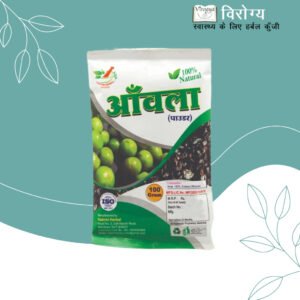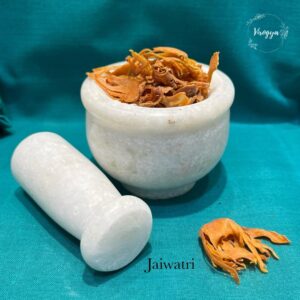Description
Shatavari (Asparagus racemosus) is a powerful medicinal herb widely used in Ayurveda. It is often referred to as the “Queen of Herbs” due to its numerous health benefits, particularly for women’s reproductive health. The name “Shatavari” translates to “one who possesses a hundred husbands,” symbolizing its ability to promote vitality and fertility.
Shatavari is a climbing shrub with small, pine-like needle-shaped leaves and clusters of white flowers. It produces small, round, reddish-black berries. The roots are thick, tuberous, and the most commonly used part in medicinal preparations.
Health Benefits
Women’s Health & Fertility
- Acts as a natural hormone balancer
- Supports menstrual cycle regulation
- Helps in managing PMS and menopausal symptoms
- Enhances fertility and reproductive health
- Promotes lactation in breastfeeding mothers
Digestive Health
- Supports gut health and reduces acidity
- Aids digestion and relieves constipation
- Has anti-ulcer properties
Immune System Support
- Strengthens immunity and fights infections
- Acts as an antioxidant to reduce oxidative stress
Stress & Mental Well-being
- Works as an adaptogen, helping the body cope with stress
- Supports mental clarity and reduces anxiety
Anti-inflammatory & Antioxidant Properties
- Reduces inflammation and supports overall health
- Helps in managing arthritis and joint pain
Benefits for Men
- Enhances stamina and vitality
- Supports reproductive health and improves sperm quality
Precautions & Side Effects:
- Generally safe, but excessive consumption may cause bloating or mild digestive issues
- Not recommended for those with estrogen-sensitive conditions without medical advice
- Should be used with caution in people with kidney disorders
Conclusion
Shatavari is a highly beneficial herb known for its rejuvenating and hormone-balancing properties. It supports women’s health, boosts immunity, aids digestion, and improves overall well-being. Regular use, as per Ayurvedic guidelines, can enhance vitality and promote longevity.









